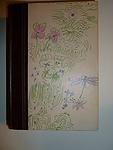Truman Capote
Truman Capote was an American novelist, playwright, screenwriter, and actor, known for his literary works that combine a journalistic approach with a flair for storytelling. His most famous work, 'In Cold Blood,' is considered a pioneering example of the true crime genre. Capote's novella 'Breakfast at Tiffany's' (1958) was also highly successful and was adapted into a popular film. His distinctive style, characterized by its precision and ability to capture the nuances of his characters, has left a significant impact on both literature and journalism.
Books
This list of books are ONLY the books that have been ranked on the lists that are aggregated on this site. This is not a comprehensive list of all books by this author.
-
1. In Cold Blood
This true crime novel tells the story of the brutal 1959 murder of a wealthy farmer, his wife and two of their children in Holcomb, Kansas. The narrative follows the investigation led by the Kansas Bureau of Investigation that ultimately leads to the capture, trial, and execution of the killers. The book explores the circumstances surrounding this horrific crime and the effects it had on the community and the people involved.
-
2. Breakfast at Tiffany's
This classic novella explores the life of a young writer in New York City and his relationship with his neighbor, a charismatic and eccentric woman who lives off the generosity of wealthy men. The woman, who dreams of a life of luxury and freedom, captivates the writer with her charm and mystery. The story is a poignant examination of love, friendship, identity, and the struggle for personal freedom in a society bound by conventions.
-
3. The Muses Are Heard
In this non-fiction account, the narrative follows an eclectic American theater troupe as they embark on a groundbreaking tour to the Soviet Union during the Cold War. The book provides a candid and often humorous look at the cultural exchange, the behind-the-scenes drama, and the clash of ideologies that unfolds as the performers present an American musical to a Russian audience. The author's sharp observations and detailed reportage offer a unique glimpse into the challenges and triumphs of artistic collaboration across political divides, highlighting the universal power of performance to bridge cultural gaps.


